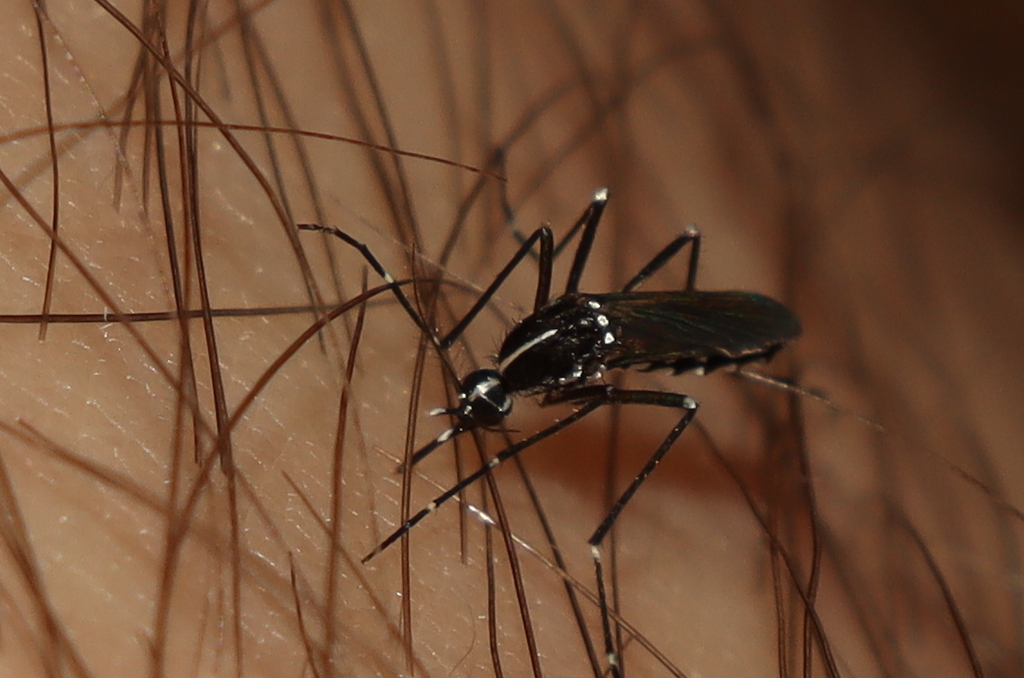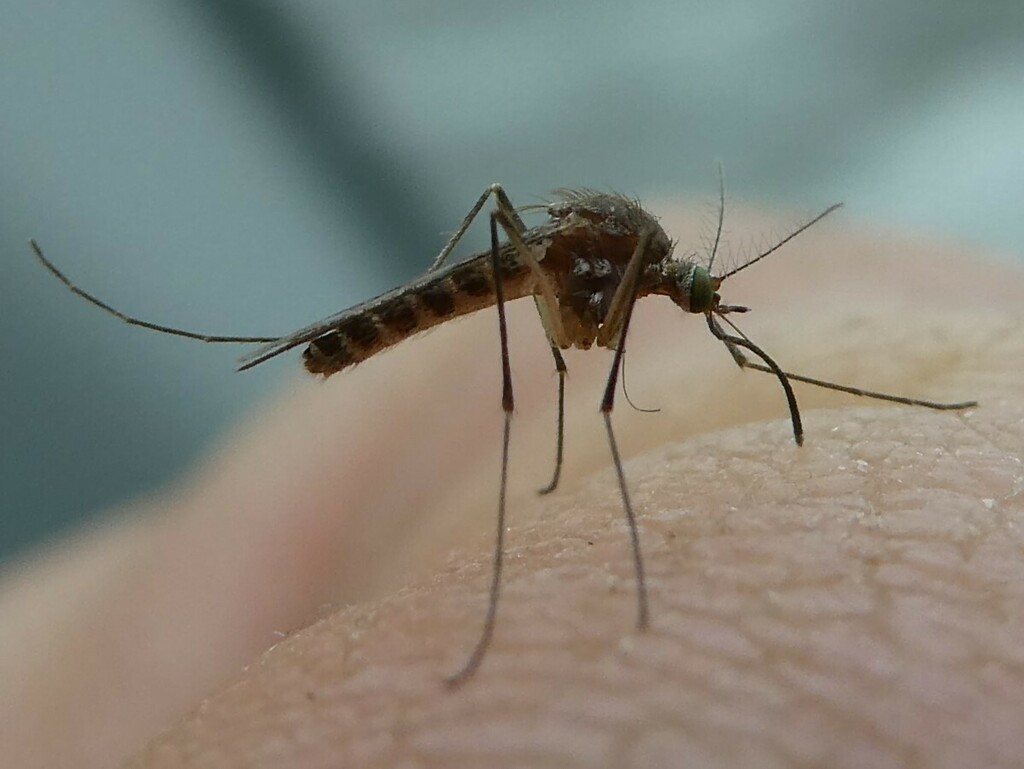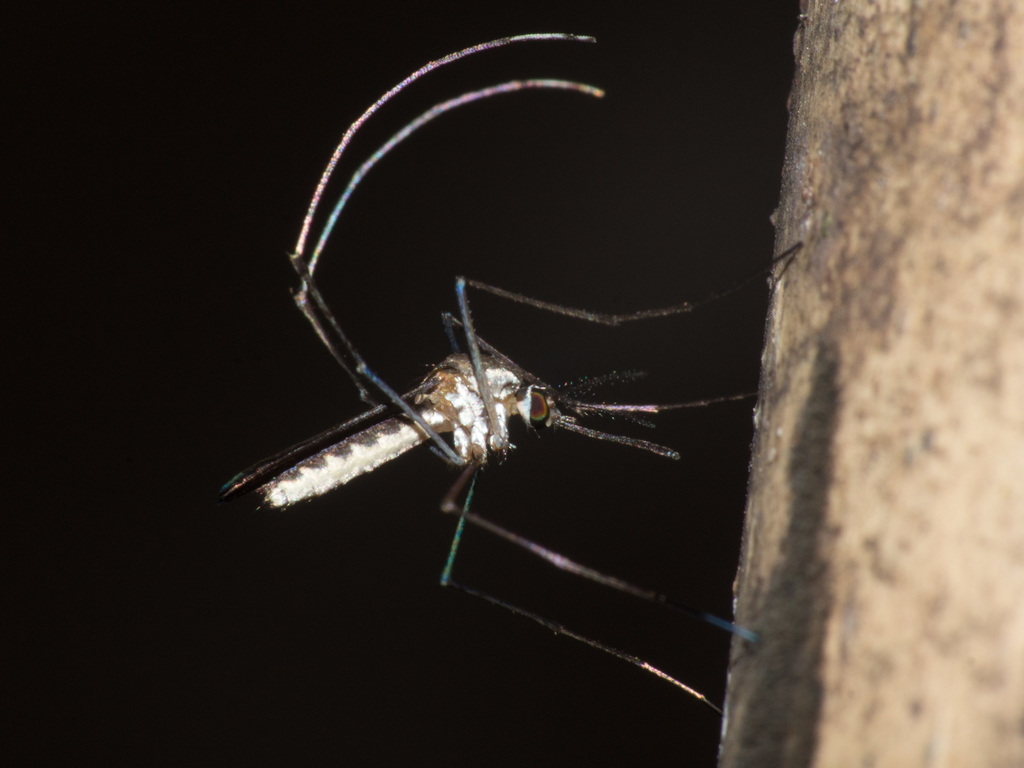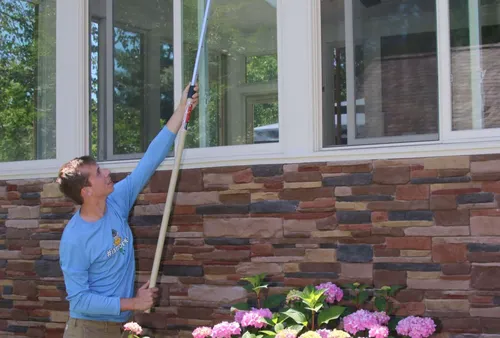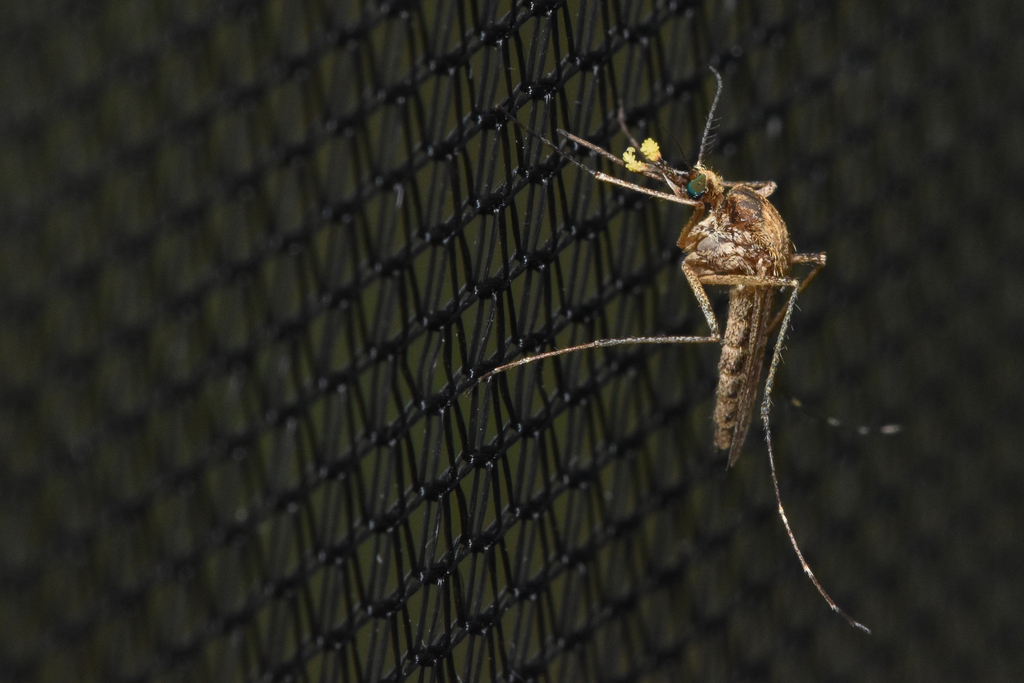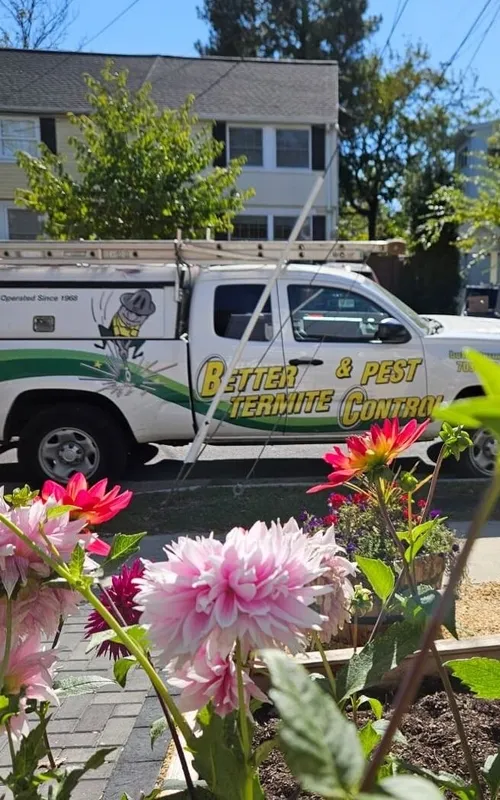Jeffersonton Mosquito Control
57 years of family-owned expertise with 9 harsh chemicals removed by our internal research team
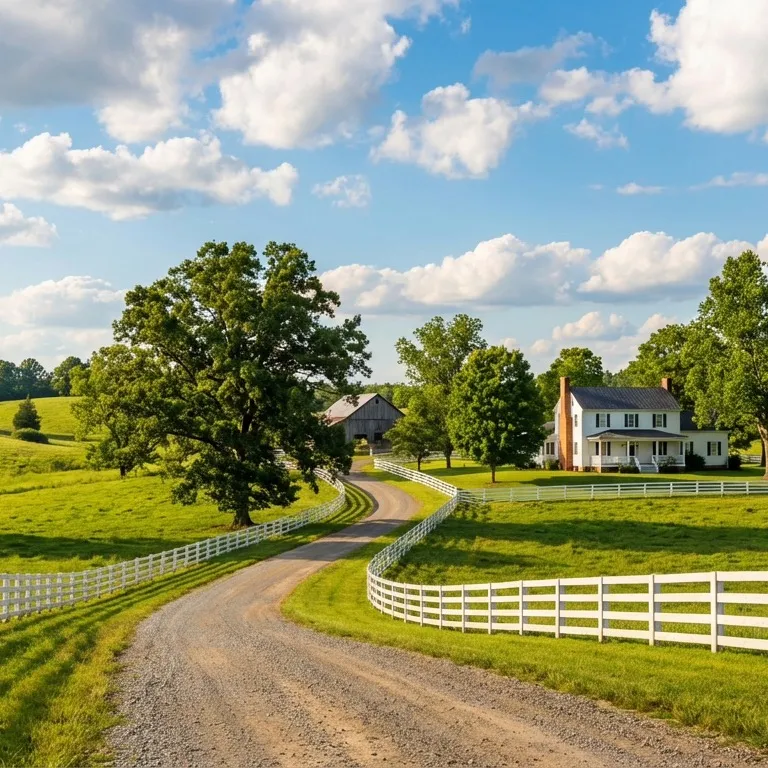





Family Owned
57 years of experience serving local homes with pets and kids.
Lower Risk Products
Our research team picked materials better for the planet & your home
No Contracts
We don't lock you in with paperwork. Stay because it works.
Jeffersonton Mosquito Control That Actually Works
If you live in Jeffersonton and you're tired of getting eaten alive every time you step outside, you're not alone. The humid Culpeper County summers, combined with the creeks, ponds, and wooded lots throughout the 22724 ZIP code, create prime conditions for mosquitoes from April straight through October.
Better Termite & Pest Control has been helping Virginia families reclaim their outdoor spaces since 1968. Three generations of the Schulz family have operated and managed our business, and we've built an internal research team that reviews every product we use. That research led us to remove 9 of the harshest chemicals common in the pest control industry, replacing them with alternatives like Essentria, Alpine, and EcoVia.
Our Jeffersonton mosquito control programs come with no binding contracts, unlimited callbacks between visits, and a real person who answers the phone when you call. If the treatment isn't getting you where you need to be, we come back at no extra cost until it does.
Get a Free Quote
Choose the option that works best for you
Option 1: Call a Licensed Tech
Option 2: Submit Your Info to our Team
Why Jeffersonton Has a Mosquito Problem
Jeffersonton sits in the Piedmont foothills of Culpeper County at roughly 450 feet elevation, surrounded by a mix of wooded lots, open pasture, and the creeks and tributaries that feed the Rappahannock River watershed. All that standing and slow-moving water creates ideal breeding habitat for mosquitoes.
Aedes albopictus (Asian tiger mosquitoes) are the biggest nuisance here. They're aggressive daytime biters that breed in small containers like clogged gutters, bird baths, and flower pot saucers. Culex pipiens (house mosquitoes) take over at dusk, breeding in larger water sources like drainage ditches and the ponds near South Wales Golf Course.
Properties in South Wales, Countryside Estates, and along Jeffersonton Road face extra pressure because many lots back up to wooded edges and natural areas. The combination of irrigated lawns, ornamental landscaping, and adjacent woods creates exactly the kind of shaded, moist environment mosquitoes prefer. Nearby Spilman Park and its mixed woods and fields add another layer of mosquito habitat just minutes from residential neighborhoods.
How Jeffersonton Mosquito Control Works
Every program starts with a thorough property inspection. Our licensed technicians walk your lot to identify breeding sites, resting areas, and moisture sources. On Jeffersonton's larger properties, that means checking outbuildings, wooded edges, irrigation zones, and anywhere water collects after a storm.
We then apply targeted barrier treatments using a backpack sprayer to foliage, ivy patches, dense shrubbery, and shaded areas where mosquitoes rest during the day. Our treatments combine an adulticide for immediate knockdown with a growth regulator that disrupts the mosquito life cycle, so you get both fast relief and long-term suppression.
Each visit includes a performance evaluation and a detailed report emailed to you explaining what was treated, what products were used, and any recommendations for reducing mosquito pressure between visits. And because every plan includes unlimited callbacks, we come back at no charge if activity picks up before your next scheduled visit.
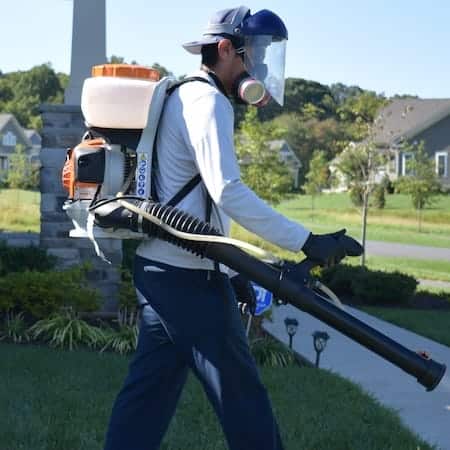
In2Care Mosquito Stations for Jeffersonton Properties
The In2Care system adds an extra layer of protection that works between spray visits. These specialized stations contain a combination of larvicide and a mosquito-specific fungus that together reduce local populations through a self-spreading process.
When female mosquitoes enter the station, they contact the treated gauze and carry those agents to other breeding sites around your property and your neighbors'. This creates a spreading effect where treated mosquitoes contaminate untreated water sources, extending control well beyond your yard boundaries.
For Jeffersonton properties near Spilman Park, the golf course ponds, or the many small creeks in the area, In2Care stations provide continuous suppression of mosquitoes breeding in nearby water sources you can't directly treat. Stations last 60-90 days per treatment cycle and complement standard barrier sprays for comprehensive coverage.
In2Care Advantages
- Controls both adult and larval mosquitoes from a single station
- Self-spreading action reaches breeding sites you can't access
- Reduces overall spray applications while maintaining results
- 60-90 day effectiveness per station treatment cycle
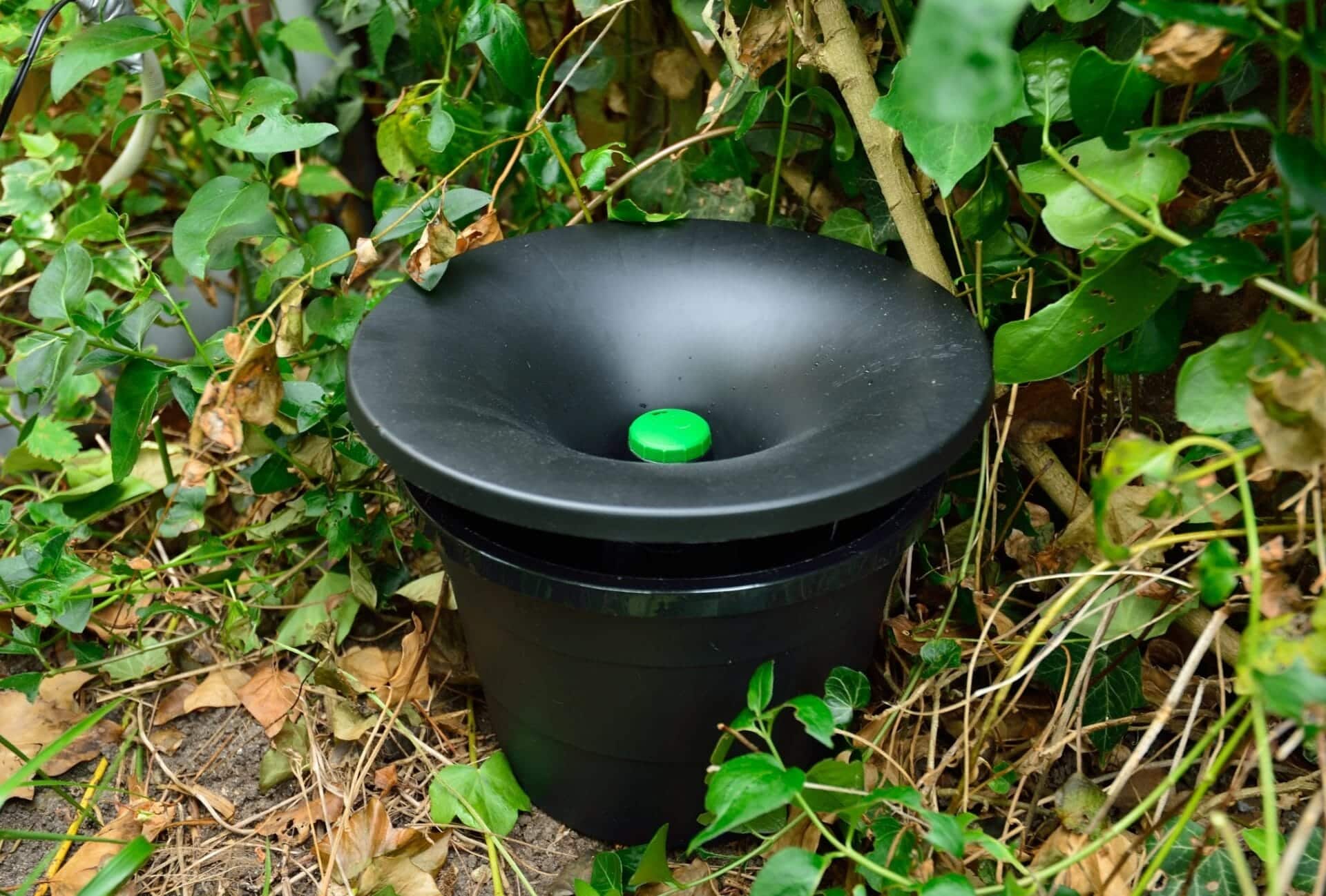
Tick Control for Jeffersonton's Wooded Properties
Jeffersonton's large, wooded lots and active deer population make tick control a natural add-on to mosquito service. Many homes in South Wales, Countryside Estates, and along rural Jeffersonton Road back up directly to forest edges where ticks wait for hosts.
Our tick program starts with granular treatments in March during the spring tick surge, targeting nymphs before they become active. Monthly barrier sprays from April through October focus on the ecotone, the zone where your manicured lawn meets natural areas and where most tick encounters happen.
A final granular application in November reduces overwintering populations heading into the cold months. Bundling tick and mosquito service means fewer scheduling headaches and better overall protection against Lyme disease, Rocky Mountain spotted fever, and other tick-borne concerns common in Culpeper County.
Annual Tick Treatment Schedule
- March: Granular startup treatment during spring tick surge
- April-October: Monthly barrier sprays along wooded property edges
- November: Final granular application before winter
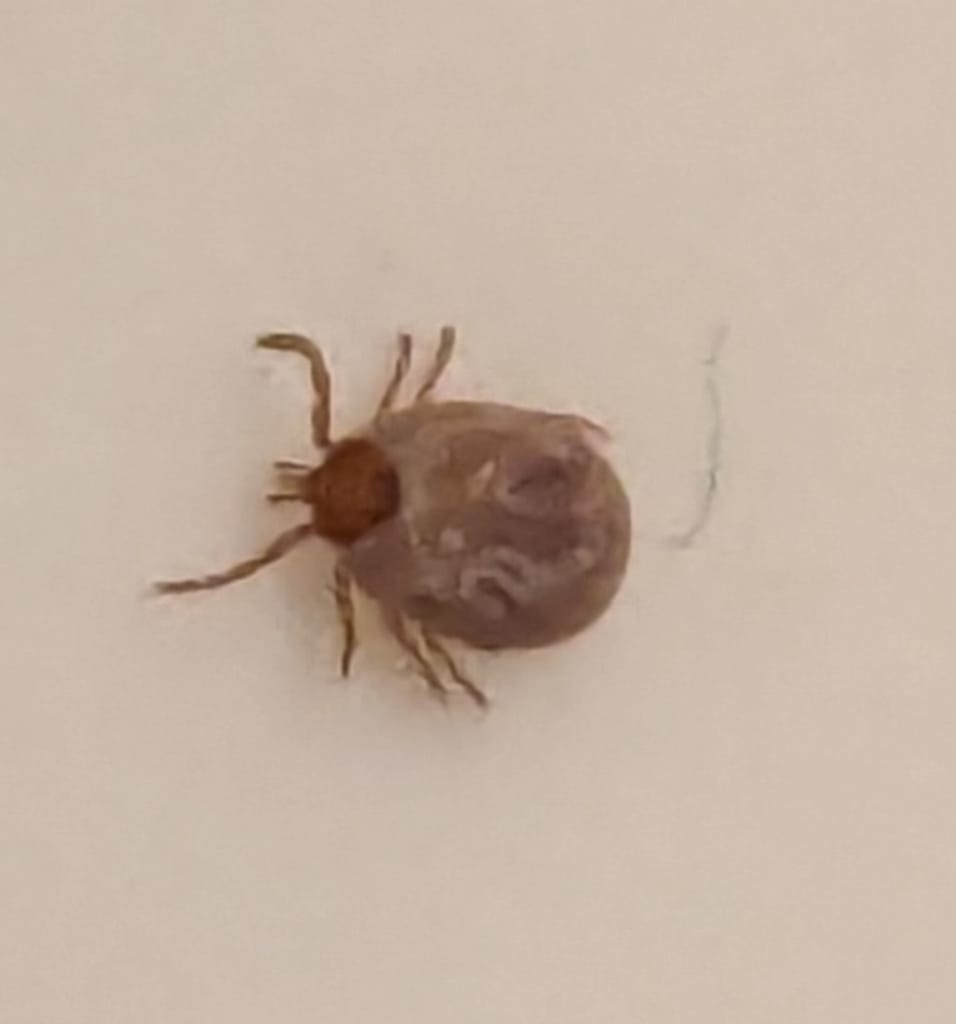
What Jeffersonton-Area Homeowners Are Saying
"I love Darren over at Better Termite. He is always so attentive and kind, and really goes, IMO, out of his way to do a fantastic job. And I am so happy that I had NO MOSQUITOES this summer in my backyard in spite of the fact that there is a drainage area right behind my house, and that is 100% because of Better Termites services."
"They offer a reasonable termite warranty, do a good check, and no nonsense."
"Better Termite has been keeping our house bug free for years with regular perimeter treatments. As a small, family owned business, they are able to personalize their approach based on your needs. It's clear that they prioritize customer service and communication. We recently had a swarm of a stinging insect take shelter under our ground-level deck, and they researched, bought necessary equipment, and came up with the best way to treat it."
"We've been a customer of Better Termite and Pest Control since moving into our townhouse over 40 years ago... They have always provided great service. They treated a problem that we had many years ago, inspect for it regularly, and it has never recurred. Their regular inspections and preventive treatments avert pest problems and give great peace of mind."
"I love Darren over at Better Termite. He is always so attentive and kind, and really goes, IMO, out of his way to do a fantastic job. And I am so happy that I had NO MOSQUITOES this summer in my backyard in spite of the fact that there is a drainage area right behind my house, and that is 100% because of Better Termites services."
"They offer a reasonable termite warranty, do a good check, and no nonsense."
"Better Termite has been keeping our house bug free for years with regular perimeter treatments. As a small, family owned business, they are able to personalize their approach based on your needs. It's clear that they prioritize customer service and communication. We recently had a swarm of a stinging insect take shelter under our ground-level deck, and they researched, bought necessary equipment, and came up with the best way to treat it."
"We've been a customer of Better Termite and Pest Control since moving into our townhouse over 40 years ago... They have always provided great service. They treated a problem that we had many years ago, inspect for it regularly, and it has never recurred. Their regular inspections and preventive treatments avert pest problems and give great peace of mind."
Our 4-Step Mosquito Treatment Process
Step 1: 78-Point Inspection. A licensed technician inspects your property for breeding sources, resting areas, and entry points. On Jeffersonton's larger lots, this includes checking barns, sheds, wooded perimeters, and any water features or low-lying areas where water pools.
Step 2: Targeted Barrier Application. We spray foliage, foundation plantings, areas under eaves and decks, and dense vegetation where mosquitoes rest. We avoid blooming flowers and edible plants to protect beneficial insects while maximizing mosquito knockdown.
Step 3: Performance Evaluation. Every treatment includes a follow-up check to verify results. If mosquito activity persists, we adjust product selection or application areas at no additional cost.
Step 4: Monthly Maintenance. Scheduled visits from April through October maintain your protective barrier. Each visit includes a full report emailed to you detailing what was treated and any property-specific recommendations.
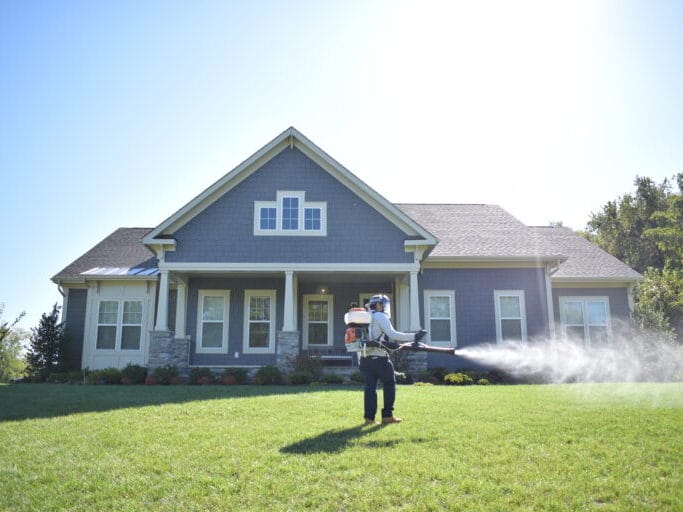
Serving Jeffersonton & Culpeper County
From South Wales to Countryside Estates, we keep Jeffersonton families comfortable outdoors.
Get in Touch
Seasonal Mosquito Protection for Jeffersonton
Spring (March-April): We start with tick granular treatments in March, then launch monthly mosquito barrier applications in April before the first major hatch. Early intervention prevents populations from establishing in your yard's breeding sites.
Summer (May-September): Monthly barrier treatments maintain protection during peak mosquito season. Jeffersonton's average summer humidity around 75% and temperatures in the upper 80s create ideal mosquito breeding conditions, so consistent monthly coverage is critical during these months.
Fall (October-November): Final mosquito barrier treatments in October target late-season species, followed by a November granular tick application. We also provide specific recommendations for eliminating standing water sources on your property before winter to reduce next year's populations.
